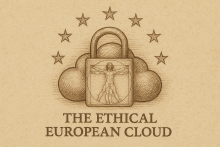What do Ursula von der Leyen and Putin have in common?

One similarity between Putin and Ursula von der Leyen is they are both unelected leaders.
But another, more subtle one is that both lived for a long time in a bubble and have a much worse understanding of real-world matters than an average citizen.
It's common knowledge that Putin has been misled into believing that he can invade Ukraine in a matter of days. It became possible because not only the state hierarchy but also the state media adapted to fit the supreme leader, feeding him the news he wanted to hear.
Same thing but on a smaller scale happens to Ursula von der Leyen. Here's the story of the alleged GPS jamming of her plane as she flew to Plovdiv on 31 August 2025.
Original reports such as this one from the BBC were based on this morning press conference of von der Leyen press secretary Podesta.
This fake news spread by von der Leyen press secretary were quickly dismissed by FlightRadar24
Von der Leyen still has to repent in response to this parliamentary enquiry.




